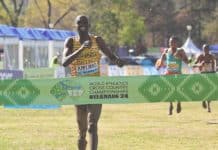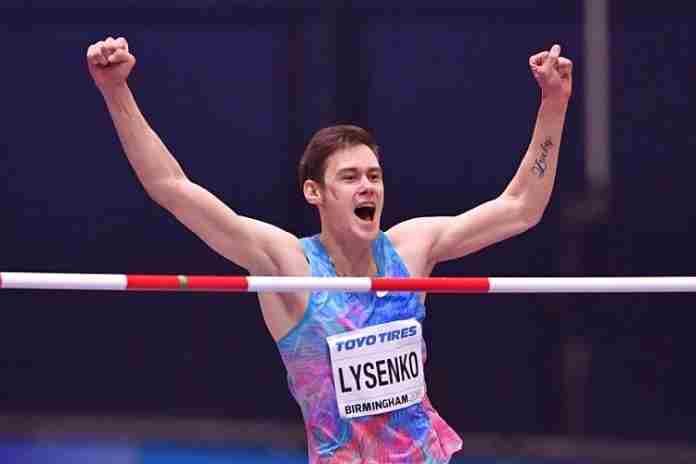If it’s in a British newspaper, the headline has to be dramatic: “Russia faces new Olympics ban over doping” and “There can be no way back for Russia after latest doping scandal.”
Those are from the Sunday (2 June) editions of The Sunday Times of London (GBR), concerning a potentially significant new problem for Russia and doping:
“Sources have told The Sunday Times that officials from the Russian Athletics Federation conspired to help Danil Lysenko, the world indoor high jump champion, avoid a ban for failing to inform drug testers about his whereabouts last year.”
This cover-up would be a fresh violation of the worldwide anti-doping rules, which require athletes who are part of the active testing pool, to keep the anti-doping organization in their country aware of their location so that unannounced drug testing can take place. This procedure is known as “whereabouts” disclosure.
Apparently, documents were fabricated by individuals associated with the Russian Athletics Federation to help Lysenko avoid a ban and be excused from reporting his location.
Lysenko performed brilliantly in 2018, winning the World Indoor Championships high jump in Birmingham (GBR) and then setting a lifetime best of 2.40 m (7-10 1/2) to win his second straight IAAF Diamond League meet in Monaco last July. But his approval to compete in 2018 was withdrawn when the whereabouts issue surfaced last August, and he has been on “provisional suspension” since then.
That 2.40 m (7-10 1/2) mark gave Lysenko a tie for the best jump of the year with Qatar’s injured Mutaz Essa Barshim, who had cleared the height in May. But the Herculis meet on Monaco on 20 July was the last time anyone saw him in competition.
The IAAF’s Athletics Integrity Unit, a no-nonsense group, has already been investigating the matter.
The IAAF still has Russian Athletics Federation under suspension, awaiting the outcome of the data review acquired and validated by the World Anti-Doping Agency in January and then testing some of the thousands of samples retrieved from the former Russian Anti-Doping Agency’s Moscow Laboratory. It appeared that with the Moscow Lab data and samples in hand, the path for the IAAF to reinstate Russia was fairly clear.
Now, who knows?
Currently, the IAAF allows a limited number of Russian athletes to compete as “Approved Neutral Athletes” (ANA), following applications submitted by the Russian Athletic Federation and then reviewed by a three-member IAAF working group. According to the Russian TASS News Agency, the Russian federation has received applications from 306 athletes to compete, of which 296 have been submitted to the IAAF by 31 May. But only 67 have been approved for international competition in 2019 so far.
The IAAF’s Russian suspension, which began in 2015 with the disclosure of the massive state-run doping scandal in the country from 2011-15, is reviewed continuously by a special working group chaired by Rune Andersen (NOR). The next review is due at the IAAF Council meeting in Monaco later this month.
It appears Andersen and his team will be busy well before then.
For now, this is about track & field and not about the entire Russian team, and any broad ban of Russia from the 2020 Tokyo Games would have to come from the International Olympic Committee. That’s not happening, at least not yet.



















